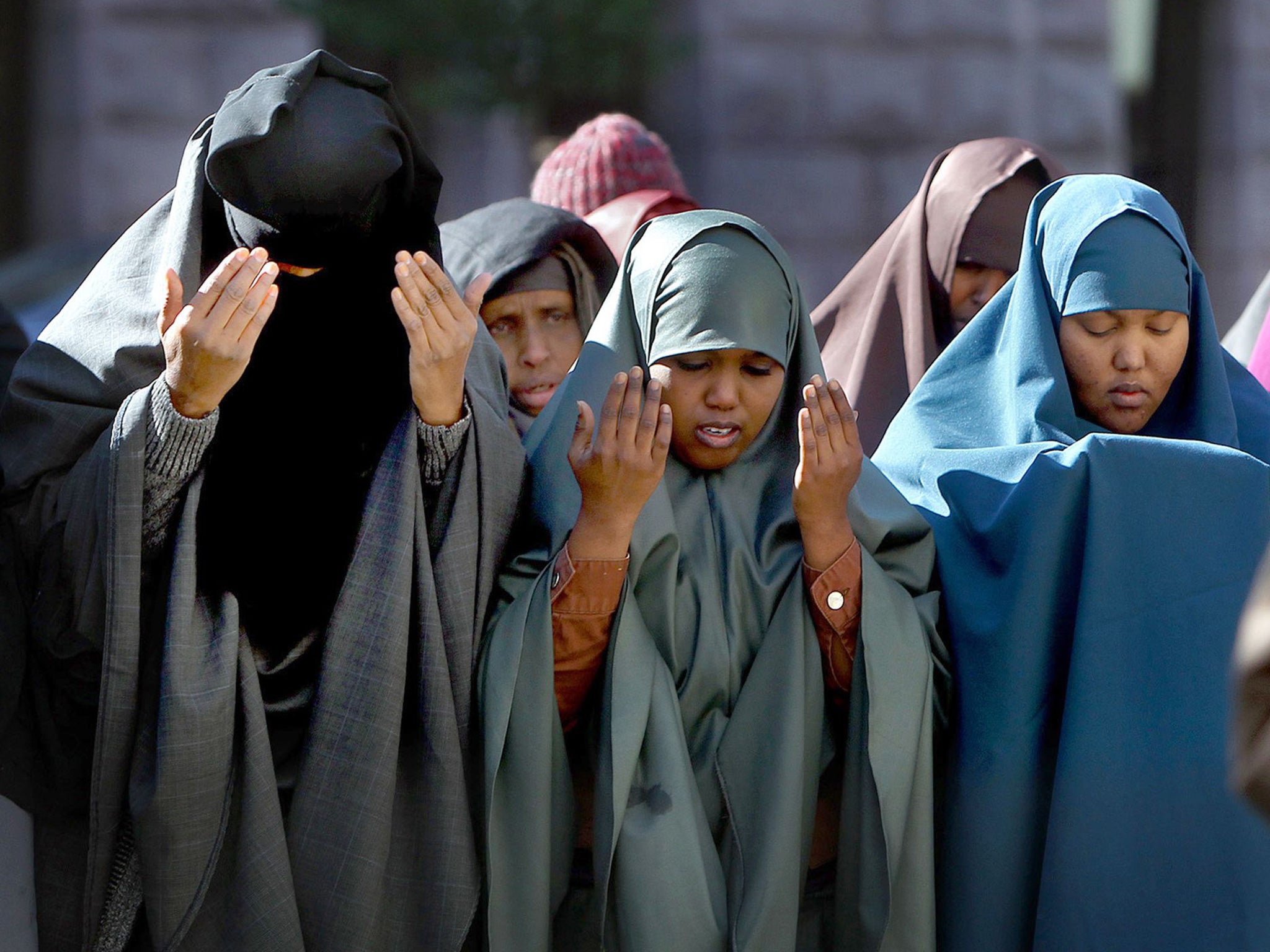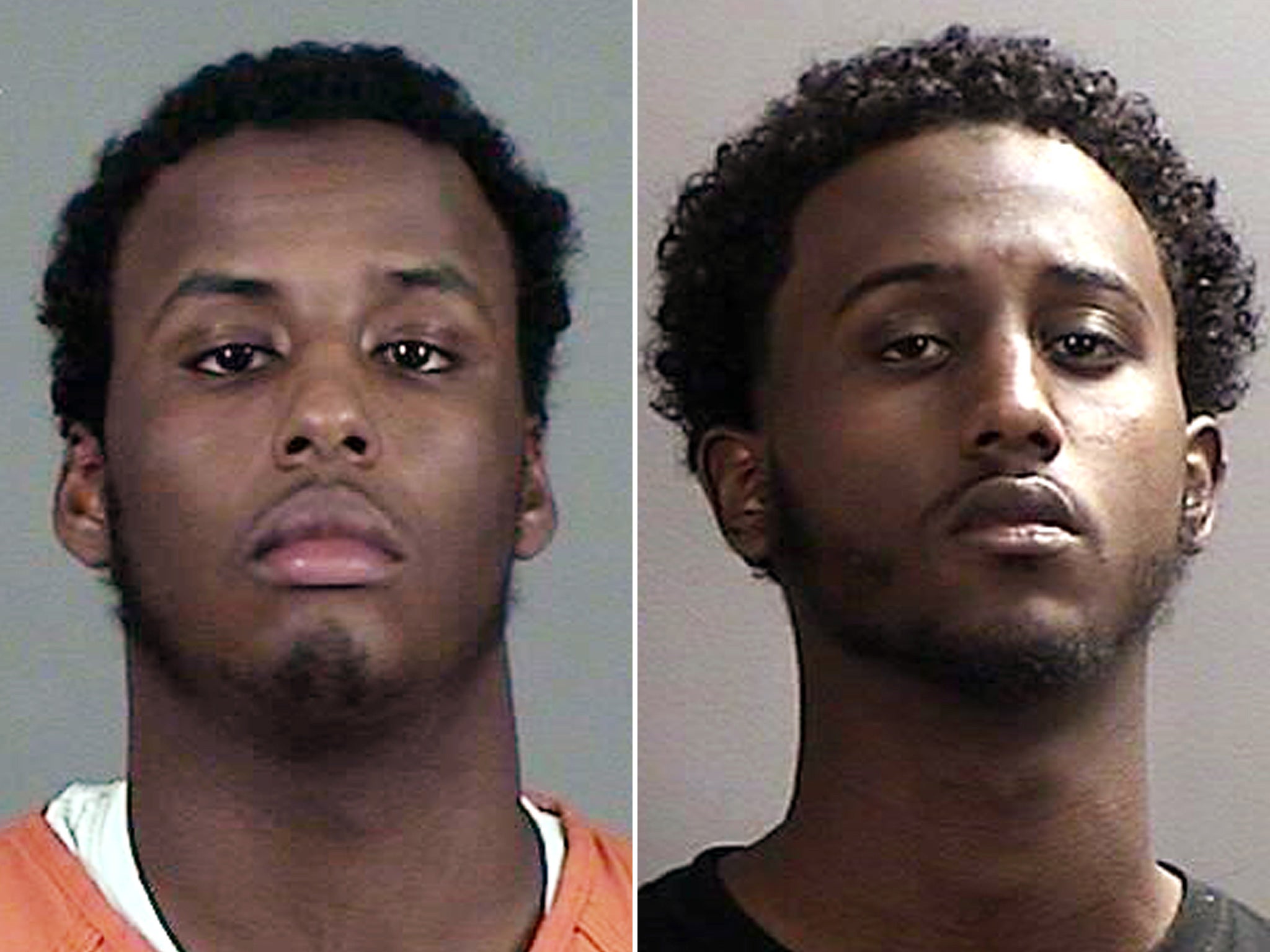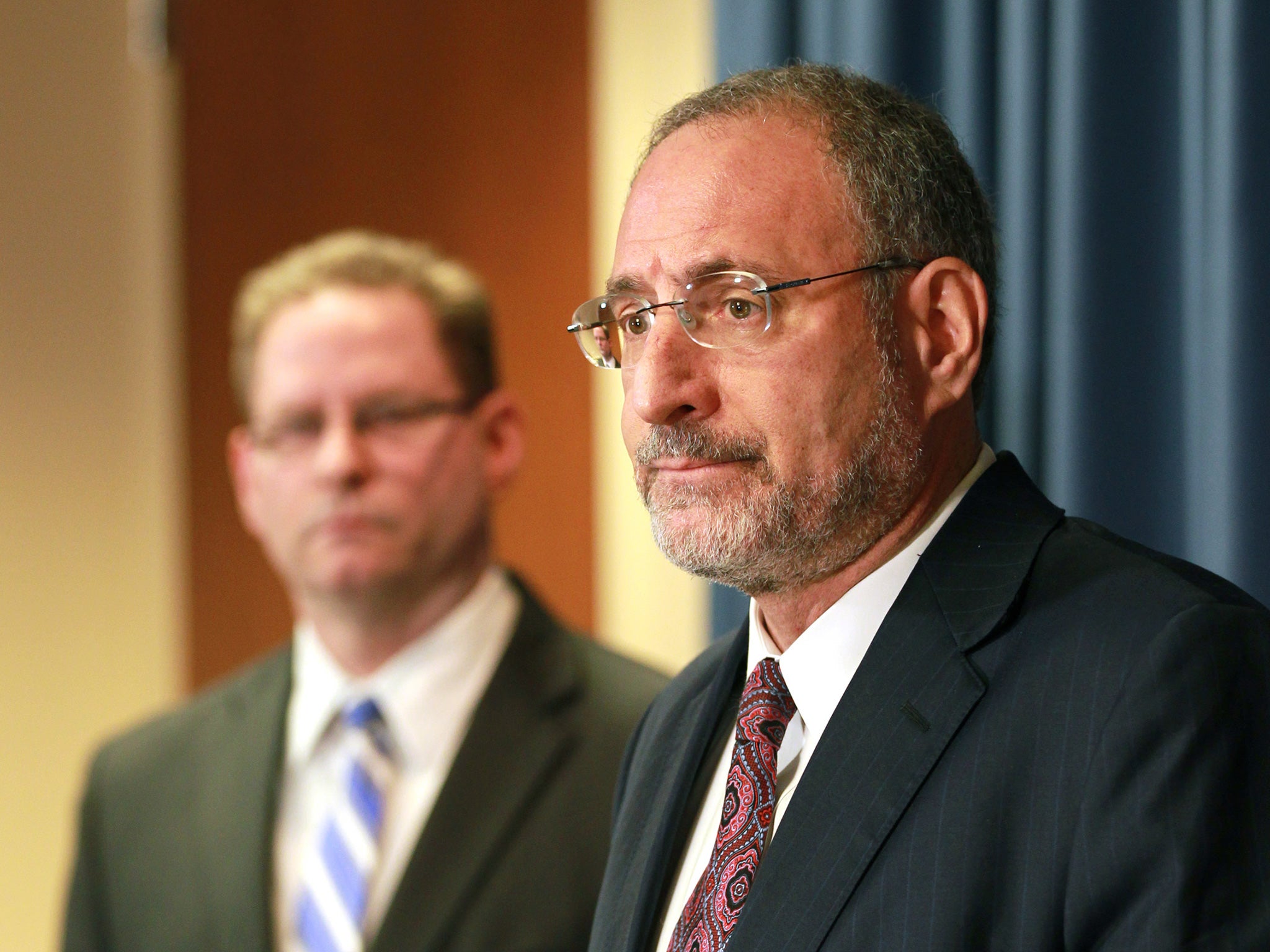Isis in US: Minneapolis's Somali community in shock following arrest of a group of its young men for attempting to fly to Syria
'I don't believe he was going there. He is a good kid,' says mother of one of the accused despite claims by authorities that they 'never stopped plotting' to get to Syria

Your support helps us to tell the story
From reproductive rights to climate change to Big Tech, The Independent is on the ground when the story is developing. Whether it's investigating the financials of Elon Musk's pro-Trump PAC or producing our latest documentary, 'The A Word', which shines a light on the American women fighting for reproductive rights, we know how important it is to parse out the facts from the messaging.
At such a critical moment in US history, we need reporters on the ground. Your donation allows us to keep sending journalists to speak to both sides of the story.
The Independent is trusted by Americans across the entire political spectrum. And unlike many other quality news outlets, we choose not to lock Americans out of our reporting and analysis with paywalls. We believe quality journalism should be available to everyone, paid for by those who can afford it.
Your support makes all the difference.They barged into her house, told her and her family to get out and handcuffed her husband, albeit briefly. Exactly why the FBI were in her home, Farhiyo Mohamed couldn’t fathom. What she did know, though, was her eldest son, Abdirahman Daud, had been missing since the previous day. The answers, when they did come, left her distraught and baffled – a state she remains in today. Her 21-year-old son was no longer in Minneapolis. He had driven non-stop to San Diego where, along with another young Somali man, he had been taken into custody.
Four other men, also young Somalis, had simultaneously been arrested here in Minneapolis. Their alleged crime: attempting to fly to Syria to fight alongside Isis.
For the Somali community here – the largest in America – it was profoundly shocking.
By Monday, Andy Luger, the US Attorney for Minnesota, was before the cameras describing what had been a 10-month investigation of the six men, all aged between 19 and 21. Over those months “they never stopped plotting” to get to Syria, he said. They did so despite three of the six suspects being intercepted while trying to board a plane at JFK in New York last November.
Then, they were given a warning by the FBI and sent back to Minneapolis. The five defendants with Ms Mohamed’s son are Guled Ali Omar, 20; brothers Mohamed Abdihamid Farah, 21, and Adnan Abdihamid Farah, 19; Zacharia Yusuf Abdurahman, 19; and Hanad Mustafe Musse, 19.

For the Federal authorities, who tracked the men with help from another in their group who had turned informant, the arrests are both a success and a warning siren. Those trying to travel from the US to join Isis are eclipsed by Europeans. But it is happening. So far this year, 25 people have been detained. And there are fears that those who successfully make the journey, might one day return to strike at the US heartland.
Last week saw the arrest of another Somali man, Abdirahman Sheik Mohamud, in Columbus, Ohio. He allegedly joined an extremist group in Syria and returned to the US after a cleric there instructed him to carry out a terrorist attack on US soil. But authorities are concerned above all, about Minnesota.
Each night this week, members of the Somali community – they number 70,000 in and around Minneapolis – have gathered at the Brian Coyle Community Centre on the south side, including some of the mothers and siblings of the arrested men, to ponder their plight. They came with a shared sense of disbelief, even anger. What the authorities contend, can’t be right, they said.
“I don’t believe he was going there [to Syria],” Ms Mohamed, 40, insisted on Wednesday, her own mother at her side. Her son, who was born in a Kenyan refugee camp that was her home for years before arriving here in 2003, was studying to be a dentist’s assistant at a community college and was working full time to help the family financially.

“I am in shock,” she added. “He is a good kid, I don’t think this is what happened. He wanted to get married.” She said she saw no sign of his having turned against the country that had become the family’s home. She had had no inkling of anything of the kind.
As she talked, a group of young Somali students were making banners for a demonstration outside the courthouse where the four men arrested here were due to appear for a hearing. “Free our Brothers, Know our Struggles, Stop the Tears of our Mothers,” one read. Many said they were friends with the men and had gone to school with them.
“They are students, just like us. Our brothers are not involved, this is entrapment,” complained Zaini Sharif, 21, echoing a suspicion that has taken hold in the community – that the unidentified informant tricked the men into making their plans so that an example could be made of them now.
Such deep distrust runs exactly counter to the authorities’ proclaimed aim of outreach to Muslim communities. Minneapolis, Boston and Los Angeles are the sites of three pilot programmes announced by the federal government in February to find ways better to detect and prevent the radicalisation of vulnerable young men long before they vanish to fight for overseas terror groups.
But the “Counter Violent Extremism” initiative, which is barely off the ground here, has run into resistance from some who worry that law enforcement will use it to gather intelligence at the same time – spying on young Muslims.
Benjamin Fribley, development manager at the Confederation of Somali Community in Minnesota, meanwhile, worries that in any event the government has been delinquent about taking the need for de-radicalisation seriously. “There are at least two parts of this delinquency,” he said. “An unwillingness to recognise the impact of the US actions in the world which have created political grievances in these kids; and an inability to see that they don’t feel integrated or part of American society. Combine the two and it’s extremely volatile.”
The criminal complaint against the men released on Monday includes some snippets of conversations between them allegedly taped by the informant. “The American identity is dead,” Mohamed Abdihamid Farah is claimed to have said to his friends. “Even if I get caught, I’m whatever… I’m through with America. Burn my ID.”
A middle sister of the Farah brothers, who withheld her name, said she didn’t know if they “were happy or unhappy”, but speculated they “had been preyed upon”, including by the propaganda videos put out by Isis on the internet. “They give a sense of false prosperity, these videos,” she said. “They are exploiting their insecurities. I don’t think they understood the consequences.”
Was she cross with them? “Super cross,” she replied. “Now they will be stripped of the rest of their lives.”
Join our commenting forum
Join thought-provoking conversations, follow other Independent readers and see their replies
Comments